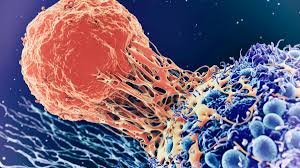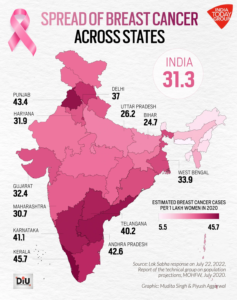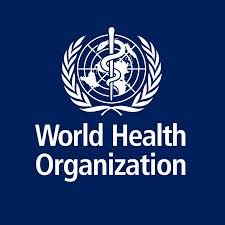Living with cancer presents significant challenges and difficulties despite its common occurrence. In India, the number of cancer cases is steadily increasing, as highlighted by recent research from a prominent hospital indicating a decline in overall health among Indians.
According to Apollo Hospitals’ report 2024, approximately 14 lakh individuals in India were diagnosed with cancer in 2020, a number projected to reach 15.7 lakh by 2025. K Srinath Reddy, former president of the Public Health Foundation of India, expressed concerns to Deutsche Welle (DW), a German news agency, stating that cancer cases and fatalities are on the rise and expected to escalate over the next two decades.
WHO states that 30-40% of cancer cases are linked to lifestyle risk factors like tobacco use, alcohol consumption, poor diet, obesity, and lack of physical activity. Experts advocate for regular health screenings.

Common types of Cancer
Cancer manifests when certain cells in the body undergo uncontrolled growth and spread to other areas. It disrupts the normal process of cell division and can originate from any part of the body. Among women, breast, cervix, and ovarian cancers are prevalent, while lung, mouth, and prostate cancers are common among men.
According to recent estimates from the Global Cancer Observatory for 2022, breast, oral, and cervical cancers collectively represented 32% of new cancer cases in India. Women accounted for a slightly higher number of new cases compared to men, with 7,22,138 affected women versus 6,91,178 affected men.
Breast cancer emerged as the most prevalent cancer among women, with 1,92,020 new cases (26.6%), followed by cervical cancer with 1,27,526 cases (17.7%). Ovarian cancer ranked third among women, comprising 6.6% of new cases in 2022.
In men, oral cancer topped the list with 1,07,812 new cases (15.6%), followed by lung cancer with 58,970 cases (8.5%), and esophageal cancer with 45,608 cases (6.6%). Breast cancer was the primary cause of death among women, accounting for 13.7% of fatalities, followed by oral cancer (5.6%) and cervical cancer (11.2%) in 2022.
Why the high incidence in India?
Doctors and experts frequently cite unhealthy lifestyle choices as the primary reason for the high incidence of cancer cases in the country.
 Dr. Vedant Kabra, attributes late marriages, limited breastfeeding practices, and other lifestyle choices as contributing factors to breast cancer. Genetic predisposition, particularly BRCA gene mutations, is also noted to be more prevalent in certain Indian populations.
Dr. Vedant Kabra, attributes late marriages, limited breastfeeding practices, and other lifestyle choices as contributing factors to breast cancer. Genetic predisposition, particularly BRCA gene mutations, is also noted to be more prevalent in certain Indian populations.
Smokeless tobacco, including gutka and paan masala, is a major contributor to oral cancers in India, accounting for 90% of cases.
Persistent HPV infection, early sexual activity, multiple partners, and lack of HPV vaccination are identified as factors contributing to the high incidence of cervical cancer.
Lung cancer is primarily linked to exposure to environmental pollutants and indoor air pollution from cooking fuels. In the National Capital Region (NCR), it’s estimated that individuals inhale environmental pollution equivalent to smoking 15 to 20 cigarettes daily.
Dr. Dinesh Singh, Chairman of Radiation Oncology at Andromeda Cancer Hospital, Sonipat, as quoted by The Times of India, highlights the changing dietary habits in India due to globalization and urbanization. He notes a shift towards consuming more processed foods, sweetened beverages, and high-fat meals, leading to increased rates of diabetes, cardiovascular disorders, and obesity among young Indians.
Dr. Singh, as quoted by The Times of India, emphasized that cancer remains a serious threat to young Indians, despite reduced incidence rates. Many young individuals delay seeking medical attention until symptoms worsen significantly.
In India, certain cancers affect younger individuals at a relatively earlier age compared to countries like the US and the UK. For instance, the median age for lung cancer diagnosis is 59 in India, whereas it is 70 in the US, 75 in the UK, and 68 in China. Approximately one million new cancer cases are diagnosed in India annually, with about 4% occurring in children.
Ruchira Misra, a pediatric oncologist and senior consultant at Mumbai’s MMR Children’s Hospital, highlighted that only 41% of public hospitals have a dedicated department for pediatric cancer patients.
Preventing Cancer
In terms of prevention, while genetic mutations cannot be controlled, lifestyle and environmental modifications can help reduce cancer risk. Experts advocate for preventive healthcare measures and emphasize the importance of regular health screenings. Nitesh Rohatgi, senior director of medical oncology at the Fortis Memorial Research Institute, urged prioritized action, suggesting that the government should incentivize screening.
 According to the World Health Organization (WHO), 30-40% of cancer cases can be attributed to lifestyle risk factors such as tobacco use, alcohol consumption, unhealthy diet, obesity, and physical inactivity. WHO and the American Institute of Cancer Research recommend dietary and nutritional changes, including healthy eating patterns, physical activity, weight management, and reduced tobacco exposure, to prevent cancer. Additionally, a study published in Nutrition Journal identified protective elements in a cancer prevention diet, such as selenium, folic acid, vitamin B-12, vitamin D, chlorophyll, and antioxidants like carotenoids.
According to the World Health Organization (WHO), 30-40% of cancer cases can be attributed to lifestyle risk factors such as tobacco use, alcohol consumption, unhealthy diet, obesity, and physical inactivity. WHO and the American Institute of Cancer Research recommend dietary and nutritional changes, including healthy eating patterns, physical activity, weight management, and reduced tobacco exposure, to prevent cancer. Additionally, a study published in Nutrition Journal identified protective elements in a cancer prevention diet, such as selenium, folic acid, vitamin B-12, vitamin D, chlorophyll, and antioxidants like carotenoids.
The journal suggests a dietary approach involving consuming a reduced amount of food (about 70-80% of the required amount for maintaining “normal” body weight), while ensuring intake of necessary vitamins, minerals, and other essential nutrients. The emphasis is on limiting total calorie intake, a practice with scientific support for potentially extending the average lifespan of various animal species, including rats, mice, fish, and ongoing research on primates.
To enhance immunity and promote stem cell growth, the journal recommends incorporating seafood, fatty fish, berries, broccoli, cauliflower, and brussels sprouts into the diet. Adequate sleep (more than seven hours), regular exercise, and intermittent fasting are also recommended. Foods such as greens, mangoes, and Greek yogurt are suggested to aid in DNA repair, while promoting gut health can be achieved by consuming grapes, black tea, pomegranate, and fish oil.










